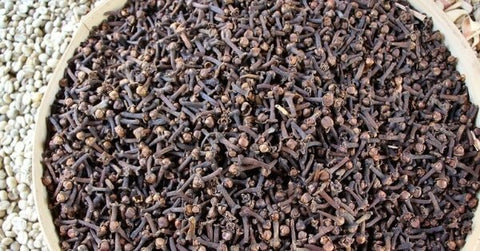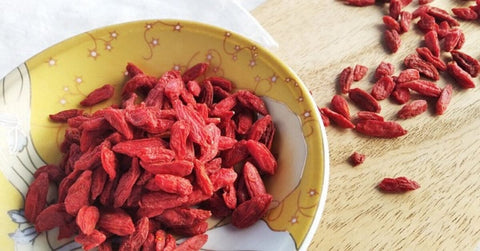If your goal is to eat healthier, infusing your diet with foods rich in polyphenols is an excellent place to start. What exactly are polyphenols, how do they benefit the human body, and what foods are they found in? We’ll be answering those questions and more in this article. Here’s what you need to know.
What are polyphenols?
Polyphenols are a category of naturally-occurring chemical compounds found in plants. Two popular ones that you’ve probably heard of are resveratrol and curcumin, however, there are more than 8,000 types of polyphenols. They can further be grouped into four different categories: phenolic acids, flavonoids, stilbenes, and lignans.
While that might sound like a bunch of gibberish, the important thing to know is that polyphenols are powerful antioxidant chemicals that are instrumental in preventing cellular damage caused by aging, the environment, and your lifestyle.
What are the benefits of polyphenols?
Research shows that polyphenols may help protect your body by improving heart health, lowering blood sugar levels, preventing blood clots, protecting against cancer, promoting healthy digestion, promoting brain function, and boosting immunity.
Polyphenols are also thought to contribute to the body being in an anti-inflammatory state, which is associated with a lower risk of many chronic diseases.
What foods are high in polyphenols?
Fortunately, reaping the benefits of polyphenols is as easy as eating certain plant-based foods. Let’s take a look at six foods high in health-boosting polyphenols.
- Cloves
If you’re looking for a powerful polyphenol punch, look no further than cloves. With the highest concentration of polyphenols of any other food, this fragrant spice contains a whopping 15,188 milligrams of polyphenols per 100 grams.
Other spices and seasonings high in polyphenols include dried peppermint, celery seed, star anise, and oregano.
- Dark chocolate
If you’ve been looking for an excuse to eat more dark chocolate, here it is! This antioxidant-rich treat offers 1,664 milligrams of polyphenols per 100 grams and a slew of incredible benefits, including lowered blood pressure, improved insulin sensitivity, and decreased levels of “bad” cholesterol.
Now, before you go eat an entire bar of dark chocolate, remember that balance is key. One ounce of dark chocolate contains 170 calories and seven grams of sugar, so try to stick to 1-2 squares a day.
- Aronia berries

Aronia berries are small, dark berries that have become popular among health-conscious consumers—and for good reason. These tart berries offer 7,850 milligrams of polyphenols per 100 grams and boast the highest Oxygen Radical Absorbance Capacity(ORAC) score than any other berry. The ORAC score measures the antioxidant capacity of different foods.
Aronia berries are also a great source of manganese, folate, iron, and vitamins A, C, E, and K. Talk about a superfood!
You can incorporate this unique berry into your healthy diet as Aronia juice, powder or tea.
- Flaxseed
This tiny seed is highly concentrated in polyphenols, with 1,528 milligrams per 100 grams. In particular, flaxseed contains a type of polyphenol called lignans, which have been linked to several health benefits, including lowered risk of heart disease, menopausal symptoms, osteoporosis, and breast cancer.
- Nuts
On top of being filled with fiber, protein, and essential fatty acids, most nuts contain a significant amount of polyphenols. Chestnuts come out on top, offering 1,215 milligrams per 100 grams. Other good polyphenol-rich choices include hazelnuts, pecans, and almonds. Just be mindful of your serving size, as nuts are quite caloric.
- Beans
Beans are a staple in some of the longest-lived populations in the world, so it comes as no surprise that they offer a good dose of polyphenols. Black beans and white beans in particular have the highest concentration of polyphenols—59 milligrams per 100 gramsfor black beans and 51 milligrams per 100 grams for white beans. While that might not seem like much compared to some of the other foods on this list, people are prone to eat larger quantities of beans compared to cloves, for example, allowing them to obtain a substantial amount.
The bottom line
Looking at this list of foods, it’s clear that getting your daily dose of polyphenols isn’t too difficult—especially considering that the sources are delicious! Any plant-based food is going to offer some polyphenols, so be sure to load up on foods like fruits, veggies, legumes, nuts, seeds, spices, and teas.
By regularly incorporating the healthy foods in this article into your diet, as well as other plant-based foods, you’ll be supporting your health, longevity, and overall well-being in many beneficial ways.



